The Nicaraguan interviews were conducted in 2011. Most of the interviewees were born in the 1950s and 1960s and became active in the movement for women’s rights through involvement during the Sandinista Revolution. Many went on to expand their notions of feminist activism, sometimes in response to post-revolution corruption and widespread disregard for women’s rights. The interviews cover a wide range of topics, including gender-based violence, rural rights, sexual rights, women’s right to own property, and the future of democracy. The Nicaragua episode of Contextualizing Feminist Voices, recorded in 2021, provides additional information on the country site.
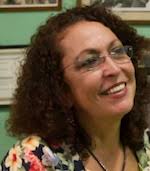
Mónica Baltodano
Mónica Baltodano, born in 1954, began her activism with the Sandinistas as a student and continued her efforts through underground mobilization, surviving imprisonment and torture. She was awarded the title of Commander Guerrilla for her service, and has held a number of political offices including Vice Minister of the Presidency and Minister of Regional Affairs. Upon leaving the FSLN in 2005, Ms. Baltodano helped to found the Movement to Reclaim Sandinismo (known as El Rescate).
Keywords: education, gender-based violence, imprisonment, politics and the law
Media: Transcripts (English, Spanish), Video (English, Spanish), Bibliography, English YouTube Video, Name Pronunciation Audio

Bertha Inés Cabrales
Bertha Inés Cabrales was born in 1943 and joined the Sandinista Front during college and in the late 1970s was sent to Sweden to organize Solidarity events in Europe. She was active in the Luisa Amanda Espinoza Association of Nicaraguan Women and at last contact was head of the Collectivo de Mujeres Itza, an organization that provides sexual and reproductive health counseling as well as legal assistance for victims of gender-based violence.
Keywords: gender and health, media, gender-based violence, reproductive rights, rural women and land reform
Media: Transcript (English, Spanish), Video (English, Spanish), Bibliography, YouTube Video (English, Spanish) Name Pronunciation Audio
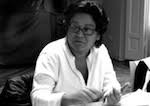
Violeta Delgado
Violeta Delgado was born in 1969, participating in the National Literacy Campaign when she was just 11 years old, kicking off a lifetime of political participation and activism. She became involved in a campaign to end domestic violence. She has done consulting, run for the National Assembly, and now works with CINCO - an organization that researches the media's role in society and politics. In 2005, Delgado was part of the group of 1000 Peacewomen that was nominated for the Nobel Peace Prize.
Keywords: feminist conferences, gender and health, education, gender-based violence, politics and the law
Media: Transcript (English, Spanish), Video (English, Spanish), Bibliography, YouTube Video (English, Spanish) Name Pronunciation Audio
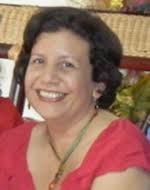
Juanita Jiménez
Juanita Jiménez was born in 1967. She is a lawyer, a leader in the Women's Autonomous Movement, and a longtime activist focusing primarily on women's health and reproductive rights. In recent years, she has become particularly active in protesting the 2006 law that outlawed all forms of abortion in Nicaragua. She has faced political persecution for her work in favor of abortion, and in particular for her support of a 9-year-old girl who had an abortion after being sexually abused.
Keywords: gender-based violence, politics and the law, reproductive rights
Media: Transcript (English, Spanish), Video (English, Spanish), Bibliography, YouTube Video (English, Spanish), Name Pronunciation Audio

Matilde Lindo
Matilde Lindo (1954-2013) was a feminist leader, teacher, sociologist and activist who focused on issues of violence and discrimination against women and racial discrimination within Nicaragua. She was a proud representative of the black population from the Rosita Mines region. She helped to start a radio program that aimed to raise awareness about violence against women as a violation of women's rights and lead the Network of Women Against Violence during the later years of her life. The GFP staff note with sadness the death of Matilde in 2013. A public obituary celebrating her life and detailing her dedication to women's rights can be found here (Spanish).
Keywords: feminist conferences, gender and health, education, intersectionality
Media: Transcript (English), Video, Bibliography, YouTube Video, Name Pronunciation Audio
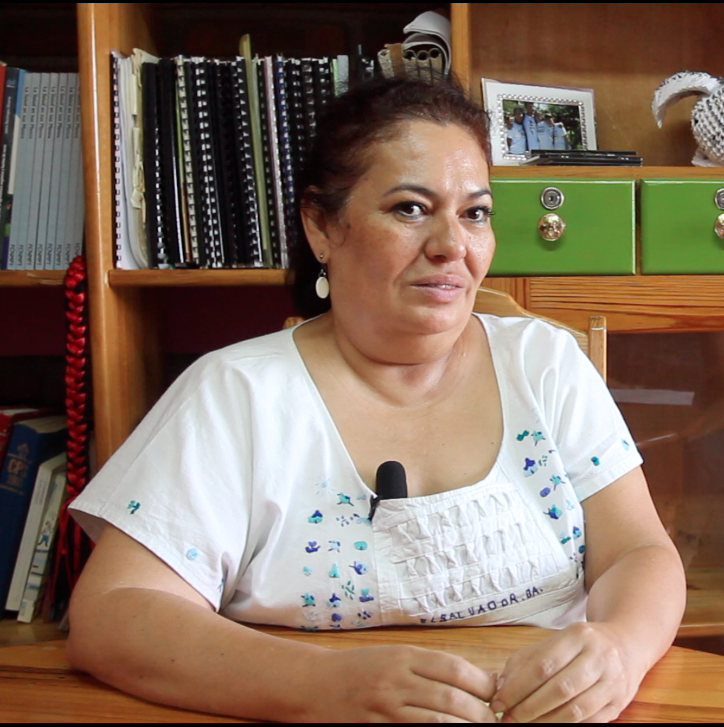
Diana Martínez
Diana Martínez was born in 1958, and became active in the Sandinista movement as a student, finishing high school in Guatemala and becoming a Marxist. After the Sandinista Revolution, she returned to Nicaragua and worked in the textile industry based on her belief in the importance of laborers, and in an effort to rid herself of her bourgeois past. She has been involved with feminist research in Nicaragua, and at last contact was a director at La Fem, a coffee cooperative for women in Estelí.
Keywords: gender and health, rural women and land reform, reproductive rights, academia and women's studies
Media: Transcript (English, Spanish), Video, Name Pronunciation Audio

Yamileth Mejía
Yamileth Mejía was born in 1967, joining the national Literacy Campaign as a girl and receiving her teacher training in Cuba in 1984. She is one of the nine feminists formally accused by the Government of Nicaragua for supporting the rights of an eleven year-old girl who had been raped to obtain an abortion. At last contact, she was working for the Project for Comprehensive Services to Victims of Gender-based Violence funded by the Spanish Cooperation Agency.
Keywords: community activism, education, gender-based violence, reproductive rights, reform of domestic/family roles
Media: Transcript (English, Spanish), Video (English, Spanish), Bibliography, YouTube Video (English, Spanish), Name Pronunciation Audio
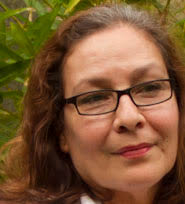
Sofía Montenegro
Sofía Montenegro was born in 1954, spending her teenage years in the United States and joining the Sandinistas as a student in Nicaragua. After the Sandinista's triumph, she became editor of the official Sandinista newspaper, Barricada, and was responsible for the funding of the weekly supplement Gente. At last contact, she was the Executive Director of the Centro de Investigación de la Comunicación (CINCO), a Managua-based think-tank the focuses on communication, culture, democracy, and public opinion.
Keywords: politics and the law
Media: Transcript (English), Video, Bibliography, Name Pronunciation Audio

Vilma Núñez
Vilma Núñez, born in 1938, served as the first woman on Nicaragua's Supreme Court after the Sandinista Revolution. As a student, she became a member of the FSLN and participated in the anti-Somoza struggle, until she was imprisoned for these efforts in 1979. Núñez has been unofficially banished from the FSLN after running for president against Daniel Ortega and defending charges of sexual abuse against him. Núñez founded the Nicaraguan Center for Human Rights (CENIDH) in 1990.
Keywords: gender-based violence, human trafficking/prostitution, imprisonment, international rights, politics and the law
Media: Transcript (English, Spanish), Video , Bibliography, Name Pronunciation Audio

Sandra Ramos
Sandra Ramos was born in 1959 and is a leader in the Women's Rights Movement whose activism focuses on women workers in the maquila. She is a co-founder and director of Nicaragua's María Elena Cuadra Women's Movement, which provides scholarships for nontraditional jobs, has a small credit program for unemployed women, teaches women about their labor rights, and provides training for negotiation techniques.
Keywords: gender and health, gender-based violence, politics and the law
Media: Transcript (English, Spanish), Video (English, Spanish), Bibliography, English YouTube Video, Name Pronunciation Audio
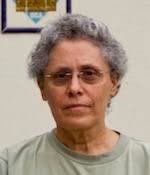
Dora María Téllez
Dora María Téllez, born in 1955, is a historian and well-known icon of the Sandinista Revolution. At age 22, she was third in command during the Sandinista takeover of the National Palace. She became Vice President of the Council of State, Political Chief of Managua, and Minister of Health. After leaving the FSLN, she founded the Sandinista Renovation Movement (MRS) in 1995. She was appointed at the Harvard Divinity School but was unable to obtain an entry visa to the USA because the PATRIOT Act classified her as a terrorist. On June 13, 2021, Téllez was detained by the police in Nicaragua and imprisoned for 20 months. She was held in isolation and total deprivation of rights for denouncing the authoritarian nature of the government and its human rights violations. On February 3, 2022, she was sentenced to 9 years in prison on the charge of “aggression against the national sovereignty” and barred from holding any public office in the future. In February of 2023, she was banished and expatriated from Nicaragua to the United States as part of a group of 222 political prisoners, who were also illegally stripped of their Nicaraguan nationality. Her struggle for democracy, social justice and defense of human rights has been internationally recognized. She has been awarded numerous accolades, including the 2022 René Cassin Prize in Human Rights awarded by the Government of the Basque Country, Spain. Read the La Prensa article about the arrest (English translation) and Mónica Baltodano’s biographical piece about Téllez (English translation).
Keywords: politics and the law
Media: Transcript (English, Spanish), Video (English, Spanish), Bibliography, English YouTube Video, Name Pronunciation Audio

Martha Heriberta Valle
Martha Heriberta Valle is an activist in the Women's Movement and in the Cooperative Movement. She joined the Revolution at an early age, and joined the organization of women farmers when the Revolution triumphed. She has been an organizer of rural women, a former elected official of the National Assembly, and at last contact was serving as president and founder of the Agricultural Cooperative Federation of Country Women Producers of Nicaragua (FEMUPROCAN).
Keywords: politics and the law, rural women and land reform
Media: Transcript (English, Spanish), Video (English, Spanish), Bibliography, English YouTube Video, Name Pronunciation Audio



